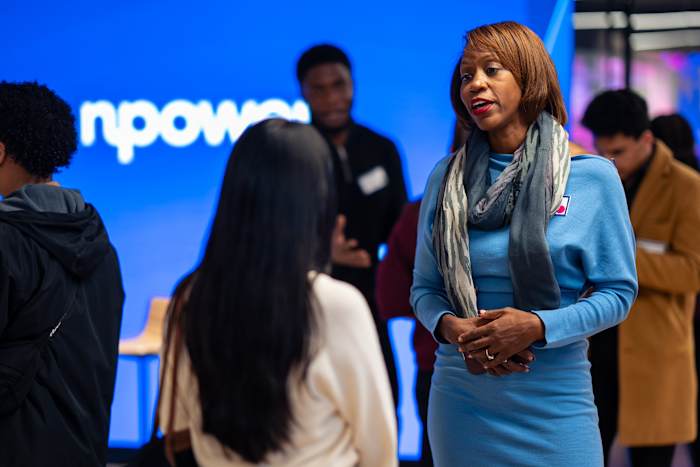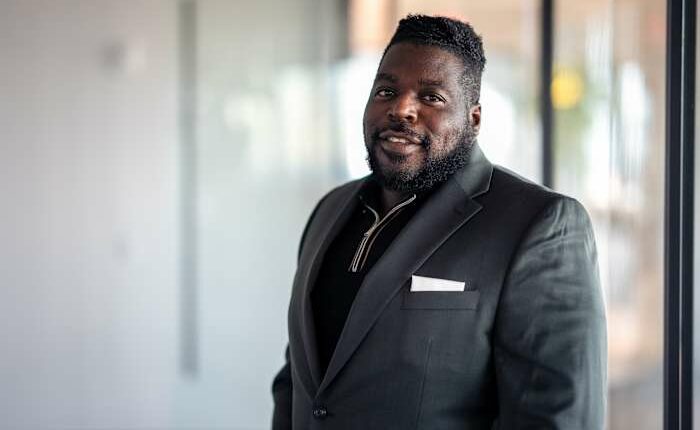Share this @internewscast.com

NEW YORK – Navigating today’s dynamic job market has become a daunting task for young professionals.
The unemployment rate for American college graduates aged 22 to 27 has reached its highest point in over a decade, excluding the pandemic period. As economic unpredictability looms, companies are cautious about expanding their workforce. This hiring hesitation is particularly affecting fields like information technology, which traditionally employ a high number of college graduates. Consequently, those who do finish their degrees face intense job searches, compounded by concerns that artificial intelligence might replace entry-level positions.
Recognizing this challenge, the Citi Foundation has dedicated its $25 million Global Innovation Challenge this year to enhancing youth employability. The philanthropic branch of the banking giant is awarding $500,000 to each of 50 organizations globally. These groups focus on equipping low-income youth with essential digital literacy, technical training, and career counseling.
“Our goal is to ensure that young people are equipped to secure employment in an ever-evolving world,” stated Ed Skyler, Citi’s Head of Enterprise Services and Public Affairs.
Feedback from employers has indicated a significant gap in the technical skills of early career applicants, stressing the importance of ongoing vocational training and the development of soft skills.
Skyler highlighted insights from a recent World Economic Forum survey of over 1,000 companies, which collectively employ millions. The survey identified skills gaps as the primary hurdle to business transformation in the coming five years. Notably, two-thirds of the companies surveyed plan to hire individuals with specialized AI skills, while 40% anticipate cutting jobs that AI technologies can handle.
Some of Citi’s grantees are responding by teaching people how to prompt AI chatbots to do work that can be automated. But Skyler emphasized it was equally important that Citi fund efforts to impart qualities AI lacks such as teamwork, empathy, judgment and communication.
“It’s not a one-size-fits-all effort where we think every young person needs to be able to code or interface with AI,” Skyler said. “What is consistent throughout the programs is we want to develop the soft skills.”
Among the recipients is NPower, a national nonprofit that seeks to improve economic opportunity in underinvested communities by making digital careers more accessible. Most of their students are young adults between the ages of 18 and 26.
NPower Chief Innovation Officer Robert Vaughn said Citi’s grant will at least double the spaces available in a program for “green students” with no tech background and oftentimes no college degree.
Considering the tech industry’s ever-changing requirements for skills and certifications, he said, applicants need to demonstrate wide-ranging capabilities both in cloud computing and artificial intelligence as well as project management and emotional intelligence.
As some entry-level roles get automated and outsourced, Vaughn said companies aren’t necessarily looking for college degrees and specialized skillsets, but AI comfortability and general competency.
“It is more now about being able to be more than just an isolated, siloed technical person,” he said. “You have to actually be a customer service person.”
Per Scholas, a tuition-free technology training nonprofit, is another one of the grantees announced Tuesday. Caitlyn Brazill, its president, said the funds will help develop careers for about 600 young adults across Los Angeles, New York, Orlando, Chicago and the greater Washington, D.C area.
To keep their classes relevant, she spends a lot of time strategizing with small businesses and huge enterprises alike. Citi’s focus on youth employability is especially important, she said, because she hears often that AI’s productivity gains have forced companies to rethink entry-level roles.
Dwindling early career opportunities have forced workforce development nonprofits like hers to provide enough hands-on training to secure jobs that previously would have required much more experience.
“But if there’s no bottom rung on the ladder, it’s really hard to leap up, right?” Brazill said.
She warned that failing to develop new career pathways could hurt the economy in the long run by blocking young people from high growth careers.
Brookings Institution senior fellow Martha Ross said Citi was certainly right to focus on technology’s disruption of the labor market. But she said the scale of that disruption is “too big for philanthropy” alone.
“We did not handle previous displacements due to automation very well,” Ross said. “We left a lot of people behind. And we now have to decide if we’re going to replicate that or not.”
___
Associated Press coverage of philanthropy and nonprofits receives support through the AP’s collaboration with The Conversation US, with funding from Lilly Endowment Inc. The AP is solely responsible for this content. For all of AP’s philanthropy coverage, visit https://apnews.com/hub/philanthropy.
Copyright 2025 The Associated Press. All rights reserved. This material may not be published, broadcast, rewritten or redistributed without permission.











